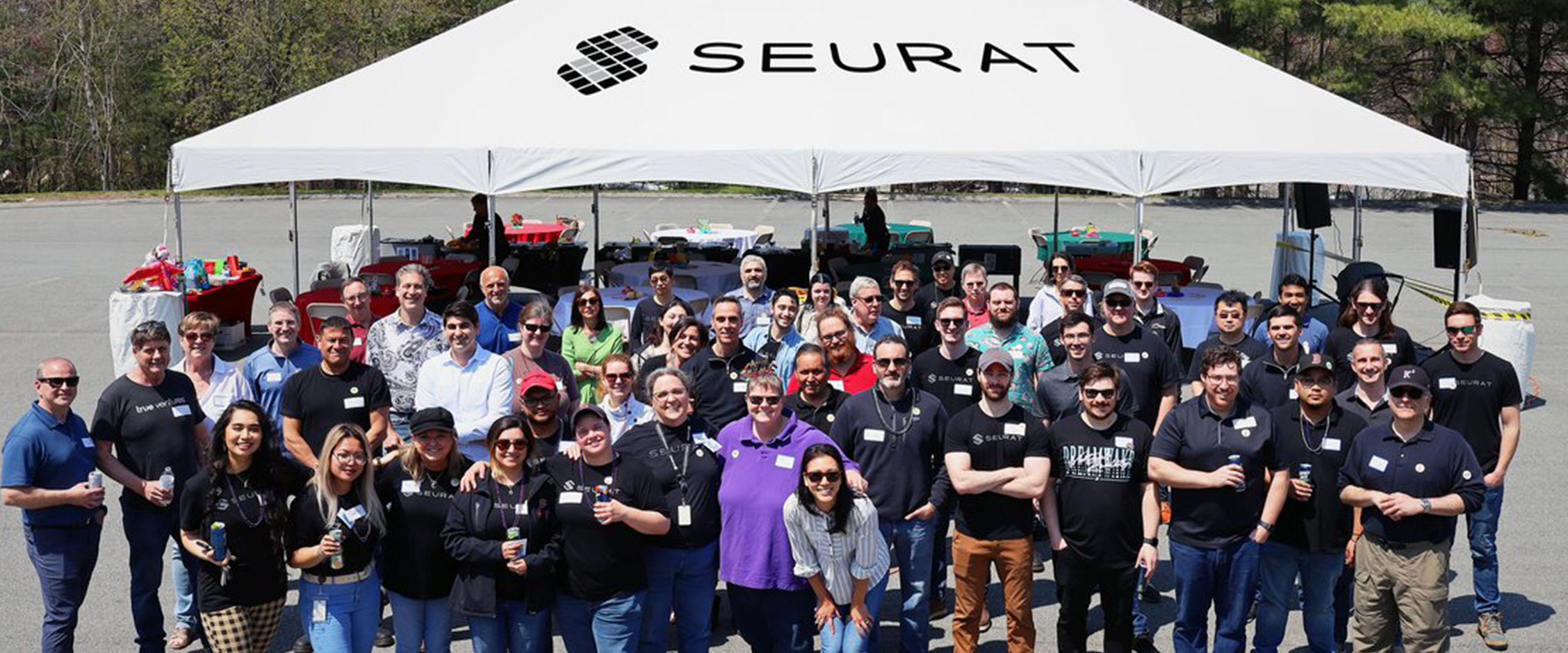Greater Boston is known as a hub for climate-tech companies. And in the last few years, the entrepreneurs in the field have raised their game. They’re looking beyond the challenge of building electric vehicles — they’re thinking about how to ensure widespread adoption by making charging easier and more affordable. They’re using 3D printing to replace carbon-intensive manufacturing processes. And, they’re supporting other cleantech companies, helping them raise the capital they need to succeed.
The amount of venture capital invested in climate-tech companies has soared over the last two years, according to Pitchbook, despite a slowdown in early 2023 alongside the rest of the VC ecosystem.
Here are eight of the unique climate tech companies that BostInno is watching this year.
Aclarity
This venture-backed, woman-owned and -founded startup is on a mission to destroy, not just dispose of, PFAS chemicals. These synthetic chemicals are now pervasive in the environment, they do not easily break down and they’ve been linked to adverse health outcomes. The company has an electrochemical process that destroys these contaminants at the industrial scale. This year Aclarity completed a full-scale pilot and sees its technology being used by customers like landfill operators and centralized waste treatment facilities.
florrent
Co-founded and led by UMass Amherst graduate Jose LaSalle, florrent is a minority-owned company making ultracapacitors with hemp grown by Black and Indigenous farmers in the U.S. Ultracapacitors help out batteries in the grid-scale use of renewable energy by providing quick bursts of energy during peak power demands. The company says its strengths lie in both sequestering carbon in hemp and supporting rural farming communities. Florrent is part of a program from Greentown Labs and Browning the Green Space called “Advancing Climatetech and Clean Energy Leaders.”
Raise Green
This clean energy fintech is helping spread the wealth in the fight against climate change. Somerville-based Raise Green helps solar projects and climate tech companies access capital. Startups pay a fee to appear on Raise Green’s digital marketplace, where investors can find and fund their project. The company also provides entrepreneurs with step-by-step support to fund their new venture, including flexible financing options, legal templates, marketing materials and investor management. Last October the company announced a $1.2 million seed round.
rStream
rStream is using computer vision and data science to build an autonomous waste-sorting system. Bins of mixed waste would no longer go straight to the trash — they would be sorted without human intervention by rStream’s technology. The Greentown Labs-based startup aims to deploy its technology in settings like stadiums and universities. rStream was recently awarded a Phase 1 SBIR grant from the National Science Foundation for $275,000.
Seurat Technologies
Wilmington-based Seurat Technologies is taking its 3D metal printing prowess into the clean energy field. The company recently landed a deal to develop 59 tons of additively manufactured metal components for Siemens Energy turbines. Last year the company announced that its first print depot is powered by 100% green energy and it aims to do the same for future sites.
Stepwise
Cambridge-based Stepwise has developed technology to work as an intermediary between a home’s electric panel and an EV charger. By monitoring the energy between the panel and charger, the new tech can access previously unused electric capacity. Stepwise was the demo day winner of Driving 2043, an early-stage startup accelerator in Boston designed to advance electric vehicle adoption in the U.S.
Sublime Systems
Not many people think about the carbon living under their feet as they walk down a sidewalk or through a parking lot. But the concrete industry is responsible for about 8% of global CO2 emissions. A main driver of this is the production of cement, a key ingredient in concrete. A Somerville startup co-founded by serial climate-tech entrepreneur Yet-Ming Chiang and Leah Ellis is giving the cement industry a makeover. Sublime Systems has its own proprietary cement formulations that emit less CO2, Chiang said. The company is also using renewable electricity to carry out the chemical reactions that traditionally are done via a kiln.
Usefull
This startup is helping organizations and communities replace disposable takeout containers with its plastic-free returnable system. Usefull works with customers to roll out its stainless steel and silicon container inventory and technology that allows organizations to check products in and out, track their inventory and more. The company works largely with colleges and communities, such as a Martha’s Vineyard restaurant program, and took part in the BlueSwell Incubator.
You can also read the full article here.


